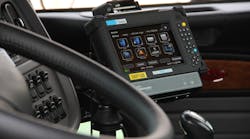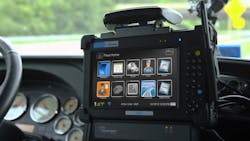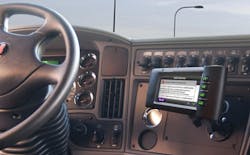The recent legislative effort to delay the impending electronic logging device (ELD) mandate this December may actually be on firmer ground than many might expect for a simple reason: the agency in charge of overseeing the mandate, namely the Federal Motor Carrier Safety Administration (FMCSA), may not be ready to enforce it.
This time last year, for example, agency personnel readily admitted they weren’t ready to handle electronic transmission of hours of service (HOS) data captured by ELDs – though they still fully expected to the rule to go into effect by this December, leaving roadside inspectors to use “other methods” to ensure ELD compliance.
[That doesn’t speak highly of FMCSA’s technical prowess; something the Government Accountability Office noted in a recent report as well.]
Yet this “lack of readiness” may very well give a controversial bill introduced by U.S. Representative Brian Babin (TX-36) last week some legislative legs in the halls of Congress; a bill that seeks to delay implementation of the ELD mandate for two years ostensibly due to the “burden” smaller motor carriers face to comply with it.
The Bill – H.R. 3282, the ELD Extension Act of 2017 – would provide for an additional two year delay before mandatory implementation of ELDs on all U.S. freight-hauling trucks scheduled for December 18 this year.
“While technology like ELDs have great promise, I didn’t come to Washington to force those ideas on small businesses – and neither did President Trump” said Rep.Babin in a statement.
“If trucking companies want to continue implementing and using ELDs, they should go right ahead,” he added. “But for those who don’t want the burden, expense and uncertainty of putting one of these devices into every truck they own by the end of the year, we can and should offer relief.”
The Owner-Operator Independent Drivers Association (OOIDA) is squarely behind the measure, specifically taking aim at the enforcement side of the ELD equation. “There are too many unanswered questions about the technical specifications and enforcement guidelines of the mandate, warranting a delay,” noted Todd Spencer, the group’s vice president, in a statement.
“The [FMCSA] agency has failed to answer important questions from Congress and industry stakeholders about this mandate,” he stressed. “This includes issues related to enforcement, connectivity, data transfers, cybersecurity vulnerabilities, and many other legitimate real world concerns,” said Spencer.
He added that FMCSA itself “refuses to certify any ELD as compliant with the rule, thus leaving consumers with no idea if a device they purchase is indeed compliant.”
And while FMCSA does maintain a list of “registered ELDs,” it is up the providers on that list self-certify their products; the agency itself is not involved in that certification process. That’s bugged many within the industry for a while, especially since, if something goes wrong, the burden of setting things right falls largely back upon the motor carrier.
Yet other trucking trade groups – notably the American Trucking Associations (ATA) and Truckload Carriers Association (TCA) – are none-too-pleased with this “last ditch” effort to delay the ELD mandate.
And they have a point, too, as fleets that spent a lot of time and money implementation ELDs want a “level playing” field in terms of HOS compliance.“The use of an ELD will enable the industry to be transparent when complying with HOS regulations and is essential to the continuation of efficient business operations,” stressed David Heller, TCA’s vice president of government affairs.
“The industry stands ready and is prepared to implement ELDs,” noted Bill Sullivan, ATA’s executive vice president of advocacy, in a statement.
“It is incumbent on regulators and on Congress to dismiss this last-ditch try by some to evade critically important safety laws,” he added. “Supporters of a delay are attempting to accomplish, almost at the 11th hour, what they’ve been unable to do in the courts, Congress or with the agency: roll back this common sense, data-supported regulation based on at best specious and at worst outright dishonest arguments.”
ATA sent a letter late last week to the FMCSA detailing why this delay-by-legislation effort is a bad idea. But perhaps the most pertinent reason why ELDs are most likely an inevitable development is that in the digital age, it seems unreasonable to rely on paper documentation for HOS data.
“It is using more accurate, easier to access and most importantly, more difficult to falsify, 21st Century technology to demonstrate compliance with the HOS rather than an easy-to-falsify, error prone and 18th Century technology of a paper and pencil,” said Sullivan.
For that and other reasons [a good blog post by my colleague Neil Abt puts some of them into perspective] the chance of a delay to the ELD rule via Congressional legislation are pretty slim.
Yet the chance remains. We’ll just have to see how Rep. Babin’s bill fares when it comes up for a vote.





